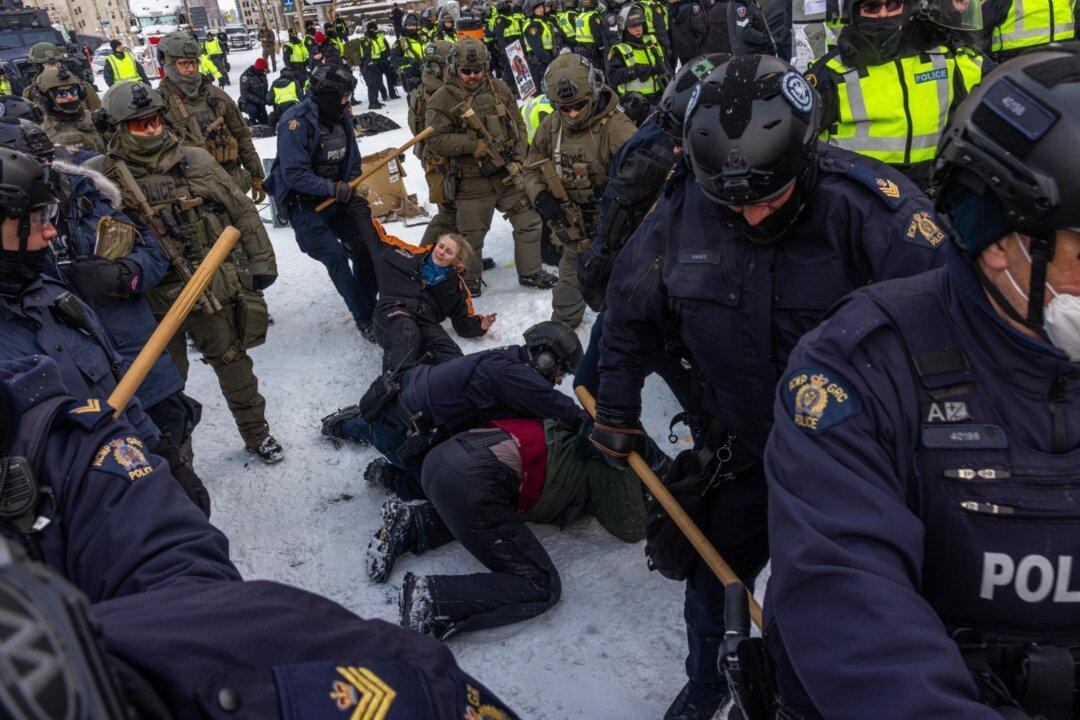Four days before the federal government announced it had invoked the Emergencies Act to clear the Freedom Convoy protests in February, Prime Minister Justin Trudeau and his cabinet were informed that the Ontario Provincial Police (OPP) lead negotiator said the protest’s leaders could potentially be persuaded to leave in exchange for a commitment from the government to “register their message,” an internal government document shows.
Throughout the protest, Trudeau and his government refused to meet with or send representatives to dialogue with the protesters.





